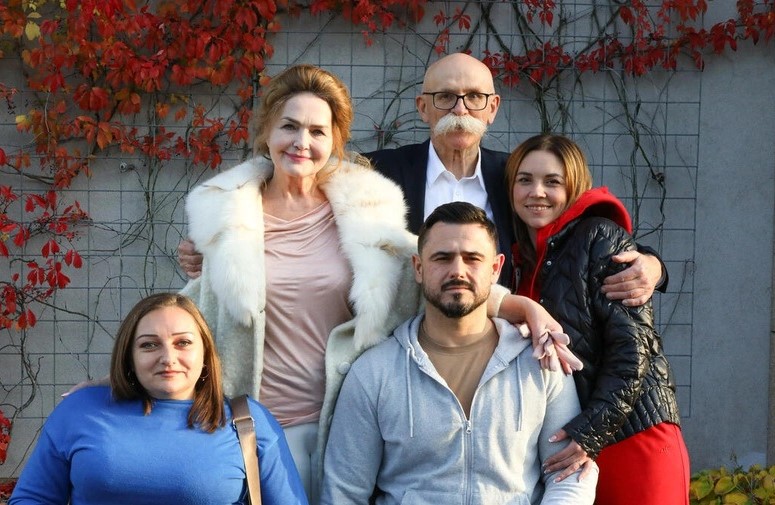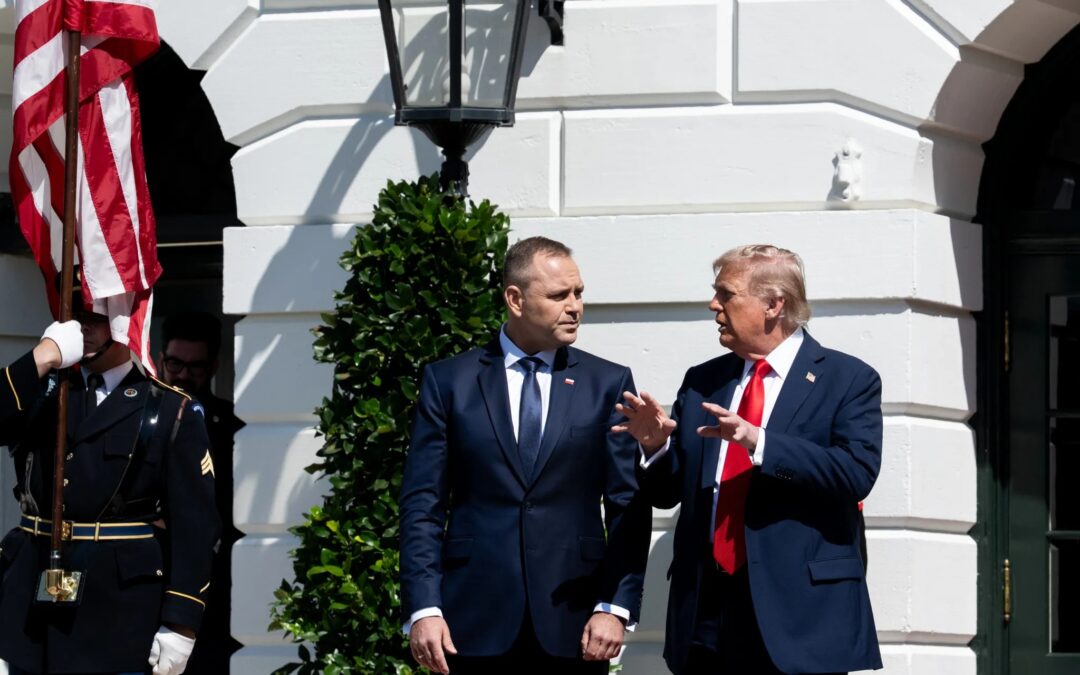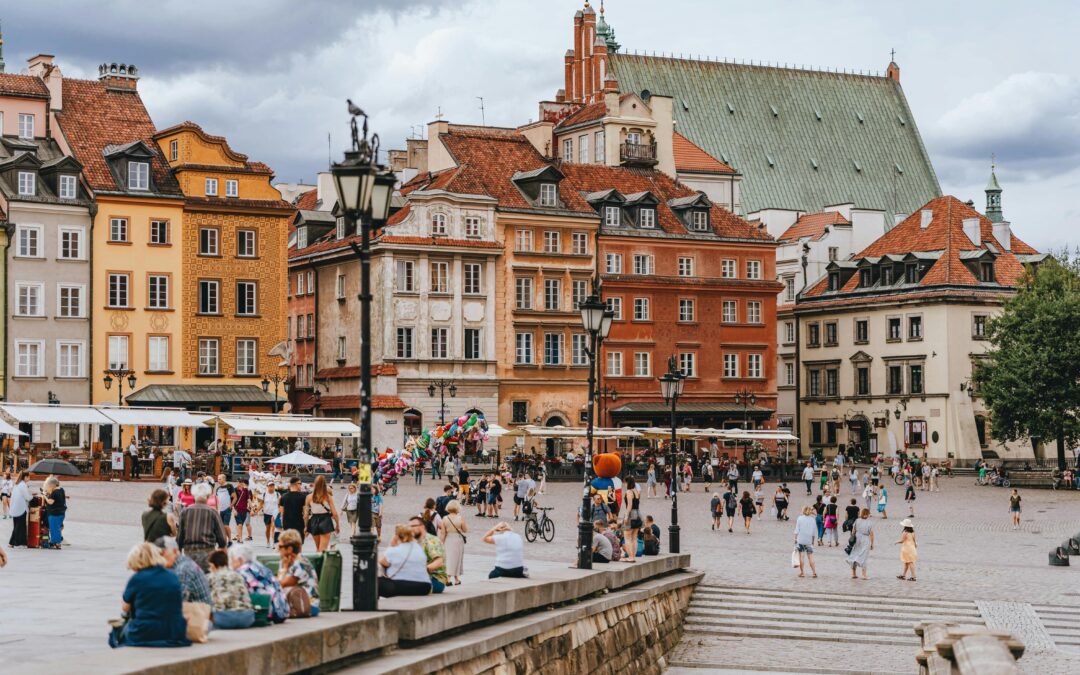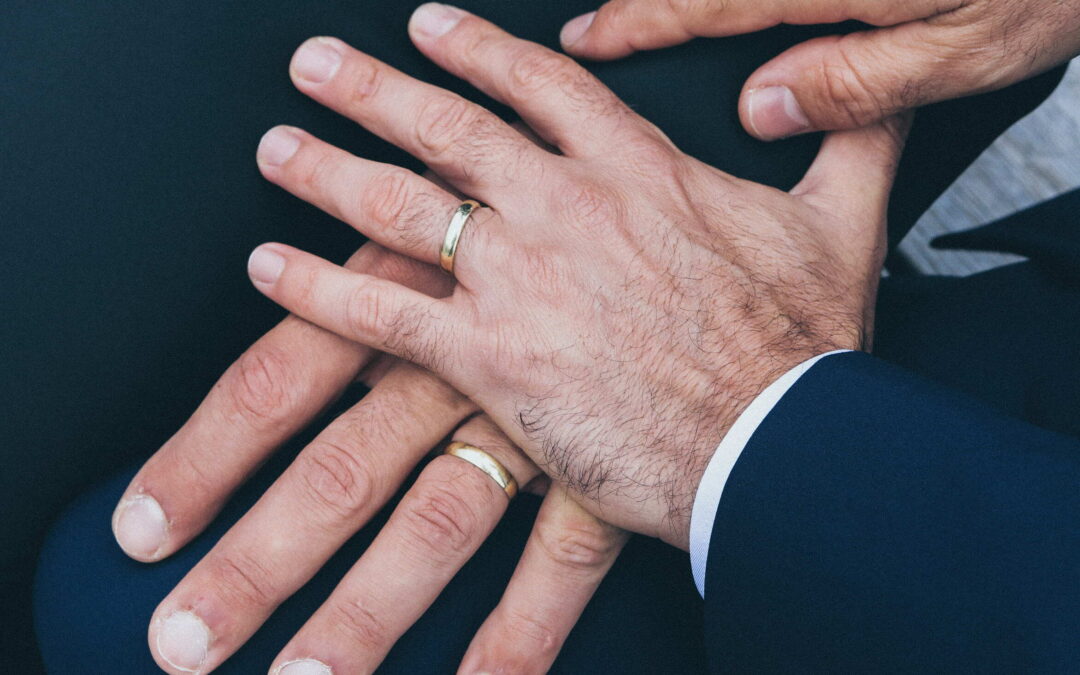A Polish couple who used their hotel chain to provide accommodation for thousands of Ukrainian refugees have won a UN award for their humanitarian work.
Lena Grochowska and Władysław Grochowski (pictured above, rear centre, with Ukrainian refugees Oksana, Valerii and Ludmila) have received this year’s United Nations Nansen Refugee Award for the Europe region.
They are the first Polish winners of the award, which “honours individuals, groups and organisations who go above and beyond the call of duty to protect refugees, as well as internally displaced and stateless people”.
Grochowski is CEO of Arche, a large hotel and property group. Immediately after Russia’s invasion of Ukraine, he and his wife launched a programme offering free accommodation in their properties to some of the millions of Ukrainians fleeing the war.
Since then, they have provided over 500,000 nights of free lodging to more than 14,000 refugees.
The UN’s refugee agency, UNHCR, notes that, in addition to this, the couple’s charitable foundation in 2022 alone provided $4.5 million for longer-term housing for Ukrainian families, including opening accommodation centres in six different Polish cities.
The Grochowskis’ “philanthropic work has had an indelible impact on thousands of refugees, providing them with vital support, including shelter, livelihoods and social integration”, wrote the agency, which also praised the couple for their efforts in uniting the business community and society.
Around 77% of Poles have been involved in helping refugees from Ukraine, for which purpose they spent around €2 billion out of their own pockets, a new study by @PIE_NET_PL has found https://t.co/xWu8JWNMui
— Notes from Poland 🇵🇱 (@notesfrompoland) July 28, 2022
“I take the Nansen Award as a thank you for what our foundation and other NGOs are doing in our country, welcoming thousands of refugees, giving them a roof over their heads, helping them find work, education, and develop their interests,” said Grochowska, quoted by Onet.
Poland was the primary destination for Ukrainian refugees after the outbreak of war, with the government, local authorities, NGOs, businesses and religious organisations – as well as millions of ordinary Poles – mobilising to help them.
Around 77% of Poles were involved in helping refugees from Ukraine in the early months of the war, for which purpose they spent an estimated 9-10 billion zloty (€1.93-2.14 billion) out of their own pockets, according to estimates by the Polish Economic Institute (PIE).
Poland deserves the Nobel Peace Prize for the help it has given to refugees from Ukraine since Russia’s invasion, says the US ambassador to Warsaw https://t.co/F4fKsoEUYc
— Notes from Poland 🇵🇱 (@notesfrompoland) September 28, 2022
“I am proud that we, as a nation, have been able to behave decently during these difficult moments in history, welcoming into our homes millions of Ukrainian women and children, the elderly and those with disabilities,” said Grochowski.
The Grochowskis established their charitable foundation in 2014, and even before the war in Ukraine were using their hotels to house refugees. Apart from providing shelter, the foundation has also helped homeless and disabled people overcome exclusion from the labour market.
“Dignity happens through work,” said Grochowski. “That’s why in our refugee homes, we don’t just leave people and give them ready-made [assistance]. People are active and looking for work.”
A Polish millionaire hotelier has appealed to the government to adopt a more humane approach to the migration crisis at the border with Belarus.
He has himself pledged to provide 100 refugee families with housing, jobs and education https://t.co/sLJcurcuy2
— Notes from Poland 🇵🇱 (@notesfrompoland) October 28, 2021

Notes from Poland is run by a small editorial team and published by an independent, non-profit foundation that is funded through donations from our readers. We cannot do what we do without your support.
Main image credit: UNHCR/Tarik Argaz

Agata Pyka is a former assistant editor at Notes from Poland. She specialises in Central and Eastern European affairs, cybersecurity, and investigative reporting. She holds a master’s degree in political communication from the University of Amsterdam, and her work has appeared in Euractiv, the Balkan Investigative Reporting Network (BIRN), and The European Correspondent, among others.



















